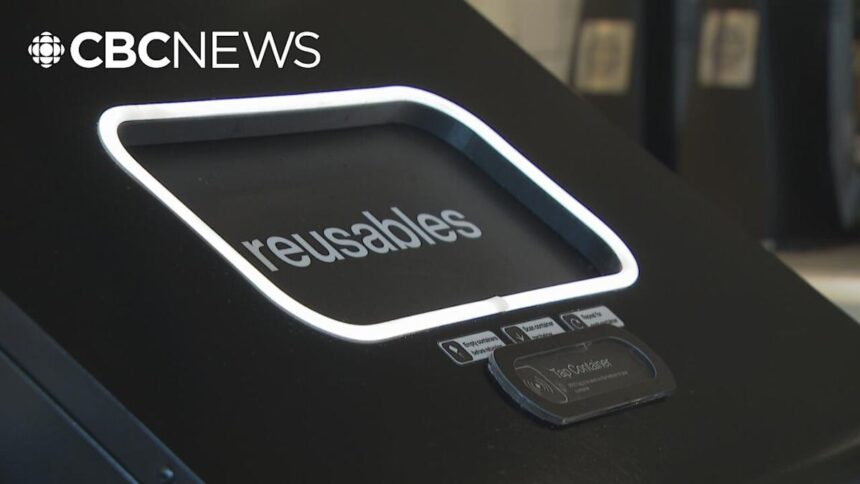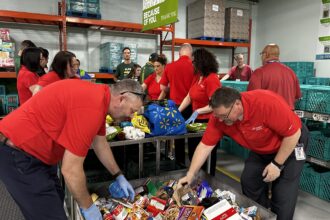In the shadow of Vancouver’s glass towers, a quiet revolution is taking place in how residents consume takeout food. Reusable container startup Reusables has transformed from a small local initiative into a thriving enterprise, diverting more than 50,000 single-use containers from landfills in just two years.
“We’ve essentially created a system where convenience doesn’t have to come at the expense of sustainability,” explains Jason Hawkins, co-founder of Reusables. The Vancouver-based company has built an innovative closed-loop system where restaurants provide meals in durable containers that customers can return at designated drop-off points throughout the city.
The program works through a straightforward model: customers order food from participating restaurants and receive their meals in Reusables containers, which they can then deposit at any of 75 return stations across Metro Vancouver. Once collected, these containers are professionally sanitized and redistributed to partner restaurants, creating a continuous cycle that eliminates waste.
What distinguishes this initiative from previous attempts at reusable systems is its focus on convenience and accessibility. “The environmental benefits are clear, but what’s really driving adoption is how seamless we’ve made the experience,” notes environmental policy analyst Miranda Chen, who has been tracking sustainable business models in British Columbia.
The company has secured partnerships with over 40 restaurants across Vancouver, including popular establishments like Tacofino, Kokomo, and Virtuous Pie. This network has allowed them to prevent approximately 1.5 tonnes of plastic waste from entering landfills, according to their internal impact assessment.
City officials have taken notice. Vancouver’s sustainability department recently recognized Reusables with an innovation award, citing the startup’s contribution to municipal waste reduction targets. “These kinds of circular economy initiatives are exactly what we need to see more of as we work toward our zero-waste goals,” said Councillor Sarah Thompson during the award ceremony.
The timing couldn’t be better. With Canada’s single-use plastic regulations tightening and consumer awareness about packaging waste growing, the market for sustainable alternatives is expanding rapidly. A recent survey by Environmental Canada found that 78% of Canadians are concerned about plastic pollution, with 62% expressing willingness to change their habits to reduce waste.
The business model has proven surprisingly resilient, even during economic downturns. “When we first launched, many investors questioned whether people would actually return the containers,” shares co-founder Alyssa Chen. “But our return rate has consistently stayed above 95%, which has been key to our financial sustainability.”
The company has secured $2.3 million in venture funding to expand operations to Victoria and potentially other Canadian cities by 2024. Their growth strategy includes developing a mobile app that will further streamline the return process and provide users with personalized impact metrics.
Restaurant owners participating in the program report positive experiences. “Initially, we were concerned about the logistics, but it’s been remarkably smooth,” says Mario Cortes, owner of Bandidas Taqueria. “Our customers love it, and it aligns perfectly with our values as a business.”
As local news of their success spreads, Reusables faces the challenge of scaling while maintaining their environmental standards. The containers themselves are made from durable, food-grade silicone and stainless steel, materials selected for their longevity and minimal environmental impact.
“Each container needs to complete at least 20 use cycles to offset its production footprint compared to single-use alternatives,” explains environmental engineer Dr. Priya Sharma. “Reusables’ containers are designed to last for hundreds of uses, making them significantly better for the environment in the long run.”
As Vancouver continues to position itself as a leader in urban sustainability, companies like Reusables demonstrate how local entrepreneurship can address global environmental challenges. Their success raises an important question: could reusable container systems become the new standard for food delivery across Canadian cities, or will the convenience of disposables prove too entrenched to overcome?










